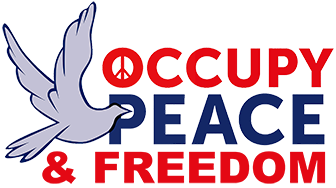Ever since U.K. Home Secretary Priti Patel formally ordered the extradition of WikiLeaks founder Julian Assange to the U.S. last week, press freedom advocates around the world have been mobilizing.
Assange Defense, on whose advisory board I serve, is organizing a national and international campaign to pressure U.S. Attorney General Merrick Garland and President Joe Biden to drop the extradition request and dismiss the charges against Assange. The stakes could not be higher.
The charges, which include 17 counts under the infamous Espionage Act, could result in 175 years in prison for the journalist who exposed U.S. war crimes.
Last week, Assange’s brother, filmmaker Gabriel Shipton, wrote in an email to Truthout, “UK Home Secretary has decided today that any publisher who exposes national security information of an allied country may face extradition to two lifetimes in prison. Julian will appeal this decision and this once in a lifetime fight for freedom of the press continues.”
Assange’s indictment is based on WikiLeaks’s 2010-2011 disclosures of U.S. war crimes in Iraq, Afghanistan and the military prison at Guantánamo. Those revelations included 400,000 field reports about the Iraq War; 15,000 unreported deaths of Iraqi civilians; and systematic rape, torture and murder committed by Iraqi forces after the U.S. military “handed over detainees to a notorious Iraqi torture squad.” WikiLeaks also disclosed the Afghan War Logs, which are 90,000 reports of more civilian casualties by coalition forces than the U.S. military had admitted to. And its revelations additionally included the Guantánamo Files, 779 secret reports showing that 150 innocent people had been held there for years and documenting the torture and abuse of 800 men and boys in violation of the Geneva Conventions and the Convention Against Torture and Other Cruel, Inhuman or Degrading Treatment or Punishment.


Recent Comments